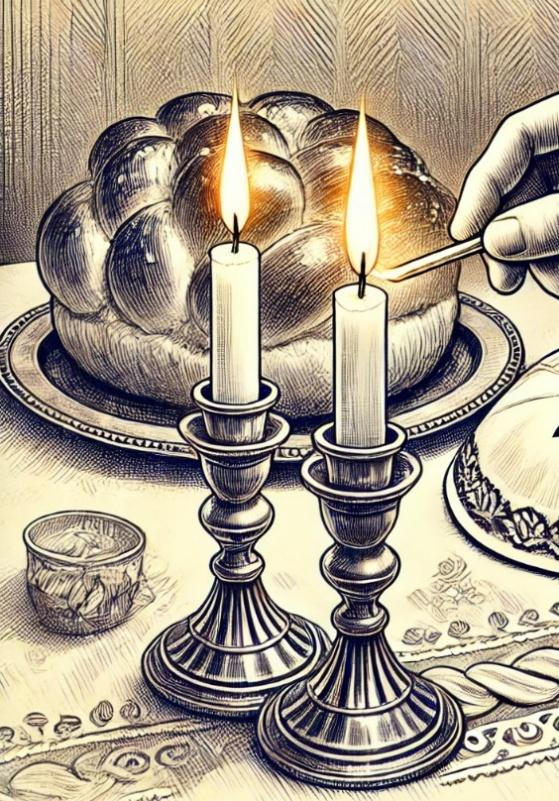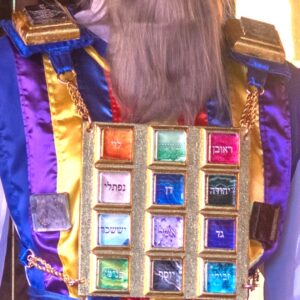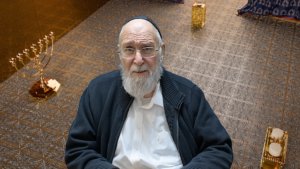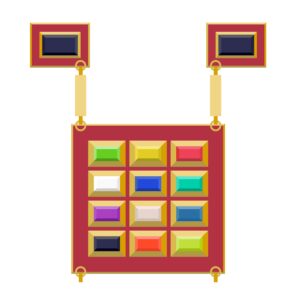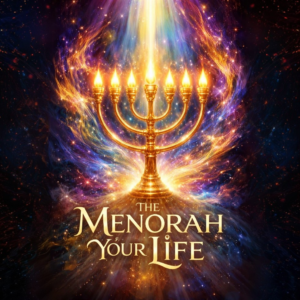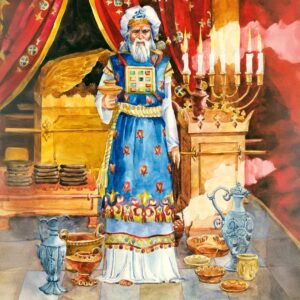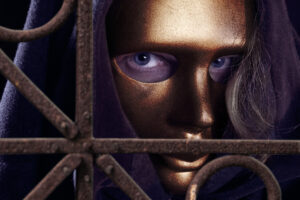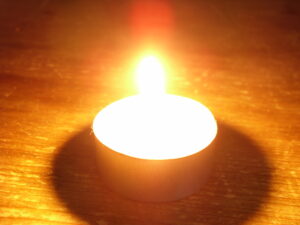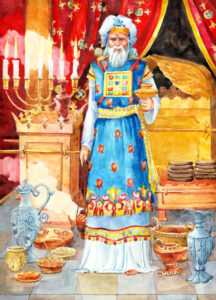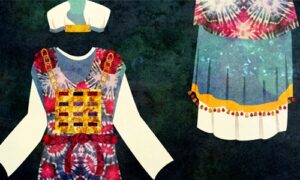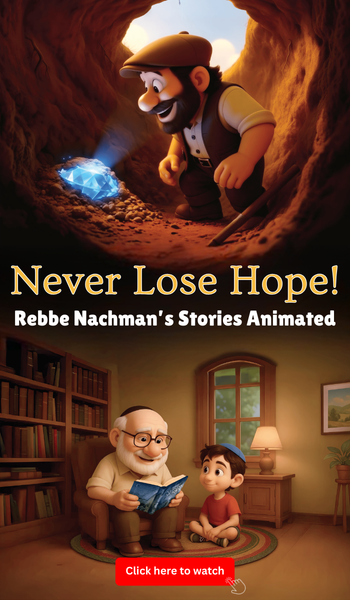Holiness with Happiness!
ADAPTED FROM HIS AUDIO SHIURIM ON SICHOS HARAN #22 AND SICHOS HARAN #2
The Magnetic Pull Of The Mishkan
Rebbe Nachman explains that the tzaddik emes is like a magnet. He has a magnetic force that draws a person to him [Likutey Moharan I, 70]. If you simply let your mind go and don’t battle it, you’ll find yourself drawn to the good side. But then there is the ko’ach hamachri’ach, the repelling force, which draws a person away from kedushah, away from the tzaddik emes, away from the Beis HaMikdash. The Beis HaMikdash is called a Mishkan. Mishkan (משכן) comes from the word MoShKheNi (משכני), the magnetic force of the Mishkan which draws all holy things to it.
A Very Big Zekhus!
These opposing, repelling forces are, in most cases, not just the satan himself, but individuals: atheists and skeptics with all types of poisoned minds who cannot sit still, who try to draw people away from faith, chas veshalom. This is the constant battle a person must fight to thwart the repelling force and allow himself to be pulled closer to the tzaddik emes by the holy magnetic force. For this reason, Rebbe Nachman says: It’s a very big zekhus for a person to be really and truly close to and bound to the tzaddik emes.
A Person must Remain Alert All His Life
Never let yourself fall into a semi-sleep, because if you stop concentrating even for a minute, that could give the satan the opening he is looking for. This is a call for alertness. A person should always remember this point. This is the yesod, the foundation, upon which a person’s life as a religious Jew is based.
Shabbos With Simchah
There is no greater service of HaShem than having faith and confidence in Him. Here you have a mitzvah with secharah betzidah, an accompanying reward; a double one actually. Rebbe Nachman says that this refers to serving HaShem with simchah at a time of stress. A person who is worried is not happy. Serve HaShem with a very happy frame of mind, with a carefree attitude in the midst of this bitachon—confidence with simchah.
Of course, this must be coupled with obedience to the mitzvos. Each day you have the mitzvah of tefillah, which supersedes all other mitzvos because the Gemara says, “Avodah sh’ba-lev zo tefillah,” [Ta’anis 2b] serving HaShem with your heart means the act of davening. When we had the Beis HaMikdash, we had the act of bringing sacrifices. Today this is done through tefillah. The mitzvah of tefillah perfects a person, because if he serves HaShem, bringing simchah and bitachon into his tefillah, he now has true peace.
Shabbos Menuchah
This true peace brings forth the Shabbos menuchah. The initials of Simchah (שמחה), Bitachon (ביטחון) and Tefillah (תפילה) form the word ShaBboS (שבת). Rebbe Nachman says that these combine to make up the Shabbos menuchah because the average religious Jew is very rested when he comes to Shabbos. He is at peace with the world and with himself, and thus forgets about his problems during the week. How so?
Dropping All Your Worries
Chazal say that for six days you should work; when Shabbos comes you will have finished all your work. How does a person finish all his work in six days? By dropping every thought about work as though it’s all completely finished when Shabbos comes [Mechilta, Shemos 20:9]. Dropping all your worries and completely resting on Shabbos is a good way of observing Shabbos and enjoying it. It is also a good solution for a person who has problems during the week [See Rashi on Shemos 20:9].
At the same time, the more observant a person is, the more worried he will be, because Shabbos is more important than all the other mitzvos. If we put all the mitzvos on a scale of importance and value, there is no question that Shabbos is the most important of all mitzvos. The Zohar HaKadosh says that the word Bereishis, the first word in the Torah, means the first, the very first and most important thing. The letters of BeREiShIS (בראשית) can be rearranged to form YaREi ShaBboS (ירא שבת), respect the Shabbos, fear the Shabbos [Tikkuney Zohar #9, 24b]. The Torah says, ‘Es Shabsosai tishmoru u’mikdashi tira’u Ani HaShem.’ You should observe the Shabbos, and if you do so, the Arizal says, “‘U’mikdashi tira’u’—you will see My Beis HaMikdash built. ‘Ani HaShem’—I promise that.”
A Jew’s prospect of seeing the coming of Mashiach is dependent on his observance of Shabbos Kodesh. The Gemara says that if the Jews would observe two Shabbosim (or even just one Shabbos, according to the Yershulami), Mashiach would come immediately [Vayikra 19:30] — because for those Jews, Mashiach would come. We see that Shabbos is the key to seeing the Beis HaMikdash rebuilt.
Shabbos … The Most Pleasant Mitzvah!
The Gemara calls Shabbos a “matanah tovah,” a good gift [Shabbos 10b]. At the same time, it is the most dangerous of all mitzvos. How could this be? Shabbos is also called a “mountain”; it is a mountain of mitzvos that hangs by a thin strand of hair [Chagigah 10b ]. The “thin strand” refers to the very few words in the Torah from which we learn the “mountain” of laws of Shabbos, the most complex set of laws in the entire Torah.
We have a whole tractate in the Talmud called Masechta Shabbos. We have a whole section of the Shulchan Arukh on the laws of Shabbos, and this, too, branches out into many more facets. A person who breaks one of these laws from the Torah has committed a sin that is so serious, the penalty is the worst kind of death: death by stoning. Is there anyone who is completely clear in his knowledge of all the laws of Shabbos that he could say, ”I know I’ve done nothing wrong,” when it’s so simple to violate Shabbos? If you have a plate of three different kinds of vegetables, you could easily violate Shabbos by simply moving one piece of vegetable the wrong way. When you do this, you are breaking the law of borer, separating, and for this there is a penalty of death, chas veshalom.
The penalty for violating Shabbos is worse than what a person gets for murder, and yet it’s so easy to break these laws. If this is so, what happens to a Jew who is observant? Shabbos comes and instead of being relaxed and happy, he’ll be very nervous, thinking, “How am I going to fulfill the laws of Shabbos completely and come through it unscathed? We are supposed to obey the Shabbos above all else. I might be breaking ten or more different laws during the day!”
A Person is Not an Angel!
Rebbe Nachman says that a person is supposed to observe the laws to the best of his ability. Of course, that doesn’t take away from a person’s obligation to learn the laws of Shabbos. It is very good to learn the laws of Shabbos especially on Shabbos itself, as the letters of the word ShaBboS (שבת) stand for Shabbos BeShabbos Tilmod (שבת בשבת תלמוד), on Shabbos you shall learn the Shabbos. At the same time, though, a person could fear that as much as he learns, there is so much more to learn. He might still be doing things that are wrong.
Therefore, Rebbe Nachman says: “I am so full of happiness when Shabbos comes. I say to HaShem, ’I have problems related to the full obedience of and compliance with the laws of Shabbos. HaShem, I hereby present You with all my problems. They are Yours now; I am free.” A Jew can give all his weekday problems and all his Shabbos problems to HaShem.
Rebbe Nachman says it is tov me’od, very good, to do this. Do it with bitachon, do it with simchah, and HaShem will erase all of a person’s problems both physically and spiritually.
- 0 comment

